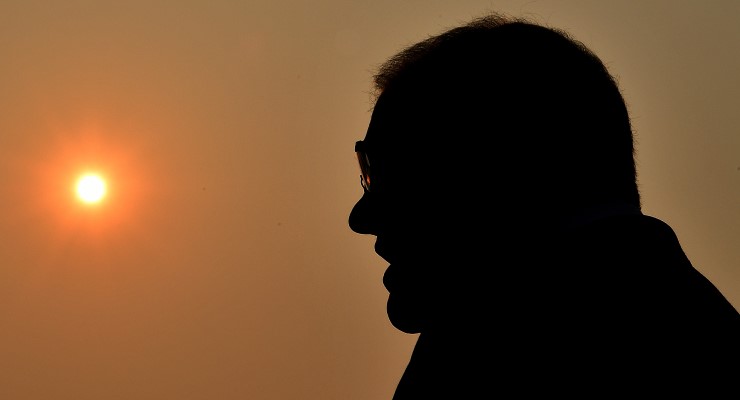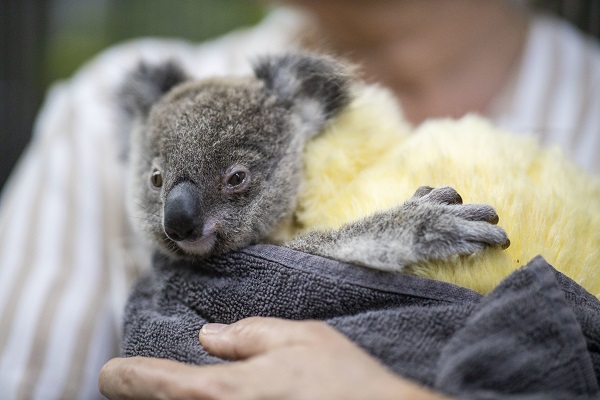
THE FIRE THIS TIME
What can one say about the catastrophe this summer? There are literally no words to adequately describe or discuss the enormous human cost in fatalities, destroyed homes and wrecked lives, the nausea-inducing toll on wildlife, the economic damage, the frightening impact on our landscape — and the exposure of a governing class that has comprehensively failed to do its job for Australians.
What’s particularly depressing is that I can’t see change in Australia’s criminal climate negligence while fossil fuel interests and their supporters continue to exploit a political system that is best described as pervasive soft corruption and self-interested secrecy. The only good news is that, very slowly, global investors appear to be shutting off the supply of money to the most polluting industries, but Australia will be a landscape of charcoal before that has any significant impact on climate.
Anyway, on that happy note: there’s plenty of information on bushfires and bushfire preparation and management, argues Kate Galloway. The only area a royal commission could profitably examine is making governance more effective. Academic Philip Zylstra demolishes claims about fuel-reduction burning and Indigenous land management. Apart from the colossal human and economic cost of the fires, they’ve also inflicted a huge toll on research, including some major projects that may never be able to proceed, as well as devastating conservation efforts.
We know that the fire catastrophe killed hundreds of millions of animals, but the individual stories are far easier to grasp than such frightening numbers; this one broke me. Meanwhile, researchers are trying to understand just how quickly the end of Arctic ice will be as a result of the warming our policymakers are inflicting on the globe. And despite the hype about renewable energy driving down emissions, we barely managed to invest more globally in 2019 than in 2018.
THE NOT ENTIRELY SCRUTABLE SCRUTON
British philosopher Roger Scruton passed away last week. Cheerfully contradictory, Scruton was a green conservative, an ardent lover of Sartre who excoriated much of French post-war philosophy, a non-believer who embraced the Church of England.
I can’t think of much I would have agreed with Scruton about but he was always thought-provoking, witty and engaging. His book Fools, Frauds and Firebrands is a brilliant dissection of much post-war intellectual history, absolutely excoriating about figures like Lacan, whom he regarded as a malignant purveyor of gibberish, critical of former idols like Sartre and engaged and often generous about left-wing historians like Hobsbawm and EP Thompson (you can get a taste of both the book and Scruton himself from this key piece on his website).

Most of all, Scruton actually lived out his conservative principles and took significant risks to challenge eastern European regimes during the Cold War. Naturally the right is lionising him; the Guardian offers a surprisingly positive obituary, noting his contradictions and how he straddled the British and Continental approaches to philosophy; Guardian columnist Kenan Malik offers a more critical appraisal of him. One of his last pieces of writing was a personal account of 2019 that ends, inevitably, with death closing in. “Coming close to death you begin to know what life means, and what it means is gratitude.”
LIVING WITH A HERNIA
The American College of Physicians has issued a call for comprehensive healthcare reform. At the National Review, a columnist calls for US warmaking powers to be curtailed. With Alabama prosecuting a woman for killing her rapist who had threatened to kill her family, how far can abused women go to protect themselves?
Plus, want more reasons to hate Uber? It’s threatening to use ISDS provisions to prevent the Colombian government from regulating it. Finally, Manhattan has tens of thousands of homeless people while thousands of luxury apartments sit unused and unowned. Something to aspire to in the Sydney and Melbourne housing markets, perhaps?
FOREIGN AFFAIRS
Rome’s mounting garbage is starting to inflict a significant political toll in Italian politics. An angry realist-school foreign policy wonk complains that too much morality is interfering with foreign policy, and uses Saudi Arabia as his example. Which is poor timing given we’ve just learnt the Saudi tyranny has helped rapists, killers and other criminals to flee justice in the United States.
The Beijing dictatorship isn’t merely a threat to the rights of its own citizens but human rights everywhere, Kenneth Roth of Human Rights Watch argues. The dire economic circumstances driving mass protests in Lebanon. And police harassment of ethnic minorities, particularly black people, is endemic in Japan.
WRITING AND OTHER CREATIVE ACTS
I, Pervert? Sorry, but legendary sci-fi author Isaac Asimov was an industrial-scale sexual harasser. And don’t bother reading SF for its predictions — ’60s science fiction was glorious in its mistakes.
How different are we from the future imaged in Blade Runner? Would Scott Morrison pass the Voight-Kampff test? Smart phones and digital tech is opening up — and changing — the way history is researched and written. The Brazilian government has charged journalist Glenn Greenwald with cybercrime for revealing corruption within the Bolsonaro administration.
Joe Aston of the Financial Review is one of my favourite writers, and reading him is always a pleasure, even when I disagree vehemently with him, or he’s targeting someone I like. At the start of the year, he wrote, wonderfully as always, of his continuing rehab efforts (20-35 standard drinks a day Joe? Bloody hell). And, the little-explored but potent relationship of music and crime.
FINALLY…
We can’t overlook the fact that hundreds of millions of animals have perished, most likely in terror and agony, in the bushfires, but that doesn’t mean we can’t take some small cheer from good news stories.
Wild2Free Kangaroo Sanctuary was pretty much destroyed in the fires on the NSW South Coast but as soon as the fires were out they were rebuilding and trying to look after bushfire victims. The recent rains definitely helped, as their videos document.

I’ve donated to Wild2Free and several other native wildlife shelters on the NSW South Coast which have been razed or severely damaged, and encourage everyone reading to provide some help to local wildlife shelters near them that, amid the ashes, have the task of feeding, nursing, parenting or, sometimes, providing a comfortable death for, animal victims of bushfires. It’s a definite antidote to the despair that this summer has engendered in so many of us.








Crikey is committed to hosting lively discussions. Help us keep the conversation useful, interesting and welcoming. We aim to publish comments quickly in the interest of promoting robust conversation, but we’re a small team and we deploy filters to protect against legal risk. Occasionally your comment may be held up while we review, but we’re working as fast as we can to keep the conversation rolling.
The Crikey comment section is members-only content. Please subscribe to leave a comment.
The Crikey comment section is members-only content. Please login to leave a comment.